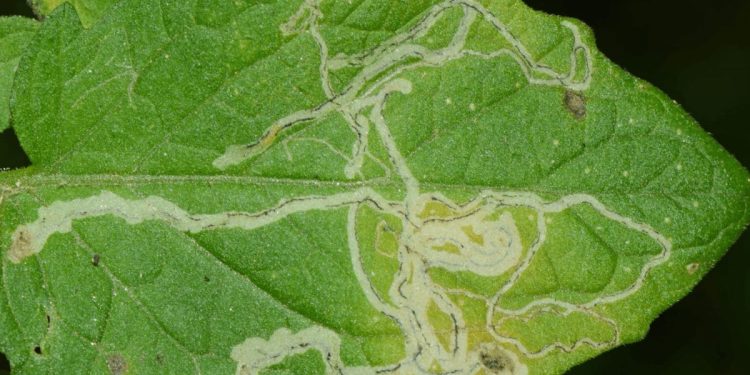#LiriomyzaSpp #LeafminerInfestation #IntegratedPestManagement #BiologicalControl #ChemicalTreatments #CropProduction #Sustainability
Liriomyza spp., commonly known as leafminers, are pests that can cause significant damage to various crops, including vegetables, fruits, and ornamental plants. These insects tunnel into the leaves, leaving distinctive serpentine mines that can reduce plant growth and yield. The infestation can be challenging to manage, especially with the development of resistance to insecticides. However, with the optimization of integrated pest management (IPM) strategies, it is possible to mitigate the impacts of leafminer infestation.
The first step in optimizing IPM strategies for leafminer management is to monitor the population levels regularly. This information helps farmers determine the appropriate control measures to implement, including cultural practices, biological control, and chemical treatments. For example, the use of sticky traps can help identify the pest’s presence and assess the population density. Cultural practices, such as sanitation and crop rotation, can also help reduce the likelihood of leafminer infestation.
Biological control is another effective means of managing leafminer populations. The introduction of natural enemies, such as parasitic wasps and predatory mites, can help control the pest’s spread. Additionally, the use of microbial insecticides, such as Bacillus thuringiensis, can be an effective means of controlling leafminer infestation while minimizing harm to non-target organisms.
Chemical treatments should be a last resort in IPM strategies for leafminer management. When selecting insecticides, farmers should consider the impact on beneficial organisms, such as pollinators and natural enemies. Furthermore, the use of insecticides should be timed appropriately to ensure maximum effectiveness.
In conclusion, the optimization of IPM strategies for leafminer management is critical to minimize the impact of these pests on crop production. Regular monitoring, cultural practices, biological control, and judicious use of insecticides are essential components of an effective IPM program. By adopting these practices, farmers can mitigate the impacts of leafminer infestation and ensure the sustainability of their crop production systems.







